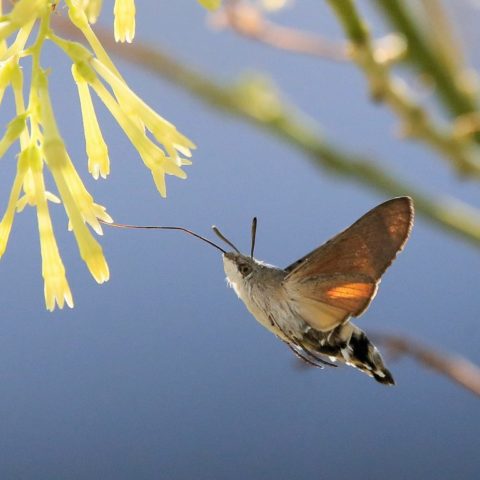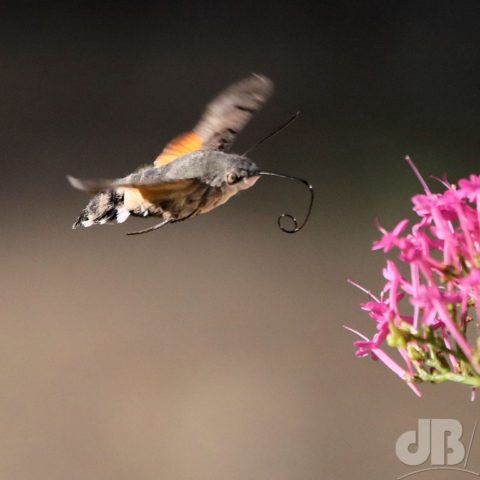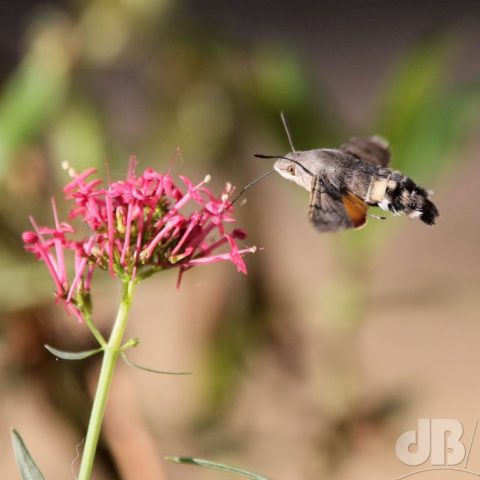You will know by now just how fascinated I have been these last 5+ years by the the section of the Lepidoptera we know here as moths…and also the moths we call butterflies. One of the most wonderful of creatures in this group is the Hummingbird Hawk-moth (not to be confused with the rather different US species known as hummingbird moths).
This moth, Macroglossum stellatarum, is present across Europe and Asia. It’s a day-flying species that nectars on lots of different types of flower. It does look like a tiny hummingbird, but of course those birds are only found in the Americas so don’t overlap with airspace here.

Anyway, a recent paper in PNAS discusses how the moths coordinate their proboscis, to feed and extract nectar from flowers. The research suggests that contrary to early theories, the moths use vision to coordinate proboscis movement, even though such complex eye–appendage coordination is unexpected in invertebrates.

Visually guided appendage reaching, such as hand to eye coordination in apes is an everyday part of our lives. It involves the perception of the relative positions of the object and the appendage in three-dimensional space as the appendage moves toward the object. That takes a lot of brain power and great eyesight.

Now, Anna Stöckl and colleagues tracked the movement of the proboscis of Hummingbird Hawk-moths as the moths explored artificial flower patterns. They found that the insects probed the visual patterns with their proboscis to a greater extent than a homogeneous flower background, suggesting visual guidance. The authors also compared the probing behaviour of the moths’ proboscis under occluded and free vision conditions. Vision occlusion impaired the moths’ ability to probe in alignment with artificial flower patterns, suggesting that visual feedback of the probing proboscis is required for targeted probing.
Visual guidance fine-tunes probing movements of an insect appendage, Proc Natl Acad Sci (USA), 2024, DOI: 10.1073/pnas.2306937121